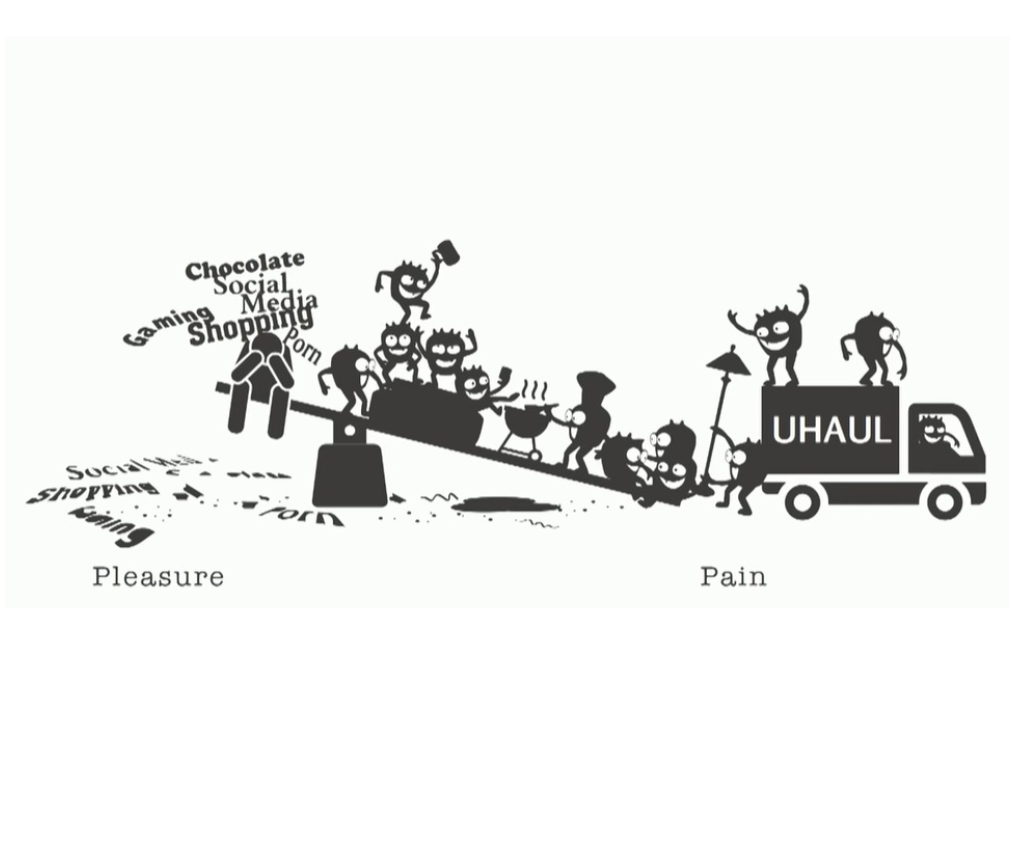Have you ever caught yourself lost in a scroll — eyes glazed, thumb on autopilot — only to realise you feel oddly empty afterwards? Maybe even anxious, restless, or low? You’re not imagining it. That emotional crash isn’t random; it’s rooted in how social media affects dopamine, the brain’s key chemical for motivation and reward. Each like, comment, or notification gives you a brief dopamine hit — a micro-reward that keeps you hooked — until, suddenly, you’re left chasing the next one and wondering why it never quite feels satisfying.
But here’s the twist: it’s not that you’re “dopamine deficient”. The truth is far more interesting — and a lot more hopeful.
In the next few minutes, you’ll discover what really happens to your brain when you scroll, why it’s so hard to stop, and how to get back in control — without giving up your phone completely.
How Social Media Hijacks Your Brain’s Reward System
Picture this: you post a photo and someone likes it within seconds. Your brain lights up. That tiny moment of validation releases a hit of dopamine — the same chemical that makes a good meal or finishing a workout feel great.
That’s dopamine doing its job: motivating you to seek pleasure and repeat behaviours that feel rewarding.
But social media has learned to hijack that system. Every like, comment, or notification gives you a small, unpredictable reward — just enough to keep you hooked. It’s no accident that your feed never ends. The “infinite scroll” is designed to trigger mini dopamine bursts, each one whispering: maybe the next swipe will feel even better.
This is what psychologists call intermittent reinforcement — the same principle that makes slot machines addictive. You never know when the next reward is coming, so you keep going. Swipe. Reward. Repeat.
The Dopamine Deficit Cycle — Why Scrolling Feels Good, Then Bad
At first, it feels good. Your brain lights up with novelty, connection, and tiny rewards. But too much stimulation has a side effect: it dulls your brain’s natural balance.
When your dopamine levels are constantly pushed up, your brain adapts by turning them down. Over time, you need more scrolling, more novelty, more stimulation to feel the same buzz.
Dr Anna Lembke, a psychiatrist at Stanford, explains:
“We go into a dopamine deficit state. That’s the way the brain restores homeostasis: if there’s a huge deviation upward, then there’s going to be a deviation downward.”
So after a scroll high comes the crash — that weird “meh” feeling when you put your phone down. It’s not sadness exactly, just a quiet emptiness. You reach for your phone again to fill it, and the loop begins again.
It’s not a weakness. It’s wiring.
Why You Can’t Stop — The Science of Scrolling Loops
Social media is a perfect storm of psychology and design — engineered to keep you curious, hopeful, and hooked.
Novelty-seeking:
Your brain loves new things. Every time you scroll, you get something slightly different — a meme, a photo, a message. Novelty keeps dopamine flowing.
Intermittent rewards:
Not every post hits, but every now and then, one really does. That unpredictability is what makes you come back.
AI algorithms:
Behind every feed is an algorithm built to learn what keeps you scrolling. It feeds you just enough reward to stay in the loop.
So no, it’s not that you “lack discipline”. The truth is that your brain — and billions of pounds of tech research — are both working toward the same thing: keeping you engaged.
Signs Your Social Media Use Might Be a Problem
You don’t need to delete your apps or go off-grid. But it’s worth checking in with yourself. Here are some quiet red flags that your relationship with social media might need a reset:
- You’ve lost interest in things that once made you happy.
- You feel restless or uneasy when you can’t check your phone.
- Your focus drifts — even during conversations or work.
- You scroll before bed… and somehow it’s suddenly midnight.
You wake up tired, anxious, or emotionally flat.
If that sounds familiar, you’re not broken. You’re just caught in a cycle your brain hasn’t yet learned to outsmart.
Breaking the Cycle — How to Reset Your Brain’s Reward System
Here’s the best part: your brain can recover. It’s designed to adapt — and that means it can rebalance too.
1. Take a mini digital detox.
Start small. Try one day without social apps, or log off every Sunday. Even short breaks help your brain reset.
2. Use your phone on purpose, not by default.
Turn off non-essential notifications. Move apps off your home screen. When you open social media, ask yourself: why now?
3. Reconnect with natural dopamine.
Spend time outdoors. Move your body. Laugh with friends. These things might not spike dopamine fast, but they nourish it deeply.
4. Let boredom breathe.
That uncomfortable urge to check your phone? Sit with it for 60 seconds. That pause is your brain relearning how to rest.
Remember — the goal isn’t to quit the digital world; it’s to build a healthy rhythm with it. You deserve to feel in charge of your attention, not captive to it.
Key Takeaways
- Scrolling doesn’t mean you’re dopamine deficient — it just overstimulates your reward system.
- Social media is built to keep dopamine firing through novelty and unpredictability.
- Overuse can dull your sensitivity to pleasure, leaving you feeling flat or restless when offline.
- You can reset your brain’s reward system by creating digital boundaries and reconnecting with real-world joy.
Small steps make a real difference — one mindful moment, one conscious scroll, one day at a time.



